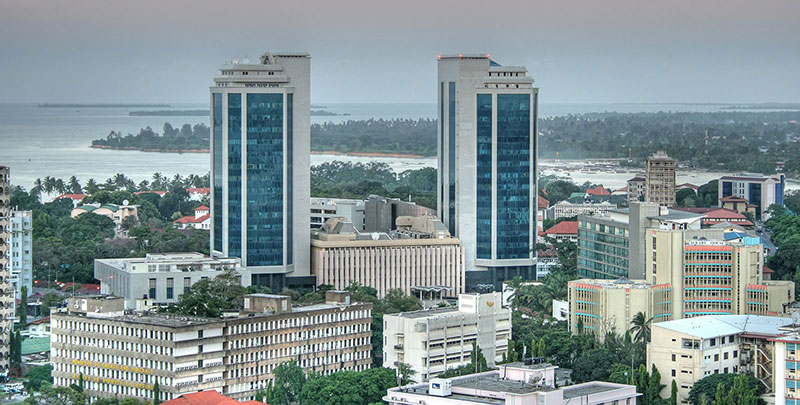(3 minutes read)
The 19th Tanzania Economic Update which was published on Tuesday, shows that Tanzania made some progress in expanding tax collection, with the tax-to-GDP ratio increasing from 10 percent in 2004/05 to 11.8 percent in 2022/23. The growth rate reached 4.6 per cent in 2022 and is projected to rise to 5.1 per cent this year supported by improving business climate and the implementation of structural reforms.
The 19th Tanzania Economic Update which was published on Tuesday, shows that Tanzania made some progress in expanding tax collection, with the tax-to-GDP ratio increasing from 10 percent in 2004/05 to 11.8 percent in 2022/23. The growth rate reached 4.6 per cent in 2022 and is projected to rise to 5.1 per cent this year supported by improving business climate and the implementation of structural reforms.
The World Bank (WB) is optimistic about the growth prospects of Tanzania’s economy despite worsening global economic conditions. Tanzania’s outlook is premised on a favourable global outlook and the government’s timely completion of structural reforms to strengthen the competitiveness of the economy, improve the business and investment environment, and reduce the cost of regulatory compliance. The growth projection has been adjusted downward to reflect the impact of worsening global economic conditions brought about by the Ukraine and Russia war that has disrupted global supply chains and insufficient rainfall in agricultural areas.
The World Bank figures are slightly downward compared to the Tanzanian government’s estimates of the economy to expand by about 5.2 per cent in 2023 from 4.7 per cent in 2022, driven by the sustained recovery in tourism and gradual stability in supply and value chains.
The report titled, Enhancing the Efficiency and Effectiveness of Fiscal Policy in Tanzania, shows that public spending has increased from 12.6 per cent of GDP to 18.2 per cent of GDP, which is still lower than the average for Sub-Saharan Africa, low-income countries, and lower-middle-income countries. It says improving the efficiency and effectiveness of fiscal policies could help Tanzania boost revenue collection and increase public expenditure, paving the way for stronger human capital outcomes, inclusive economic growth, and prosperity of the citizens.
Tanzania’s economy has been steadily expanding, and the fiscal policies have been successful in reducing income inequality, but there is still room for enhancing these policies to improve public spending in priority programmes, said Nathan Belete, World Bank Country Director. While additional resources are needed to close the service delivery gaps in social sectors, there is scope to improve the efficiency of spending within the current systems. If the healthcare system were to operate at its utmost efficiency, Tanzania could enhance critical health outcomes by 11 per cent without necessitating additional resources.
The Minister for Finance, Dr Mwigulu Nchemba said the government valued the World Bank Tanzania Economic Update, which has been useful in developing various policy reforms to address many of the economy’s challenges. The government has taken various measures including strengthening domestic revenue collection and controlling unnecessary expenditure. Tanzania continued to create friendly fiscal policies that are attracting investment and business in the country. The implementation of the blueprint for regulatory reforms removed some nuisance levies and revenue collection has improved, said the minister.
Read Also:
https://trendsnafrica.com/rmc-raises-us-1-million-for-nickel-exploration-in-tanzania/
https://trendsnafrica.com/tanzania-to-host-agrf-in-september-large-participation-expected/
The government is projecting domestic revenue to reach 14.9 per cent of the GDP in 2023/24 up from 14.4 in 2022/2023 financial year, according to its 2023/2024 budget. The growth in domestic revenue growth is expected to be driven by a 13.0 per cent increase in tax revenue from TSh 23.2 trillion in 2022/2023 financial year to TSh 26.7 trillion in 2023-2024 financial year.
The Tanzania Revenue Authority (TRA) is expected to collect TSh 26.73 trillion in tax revenues while non-tax revenue is expected to be TSh 4.66 trillion.





